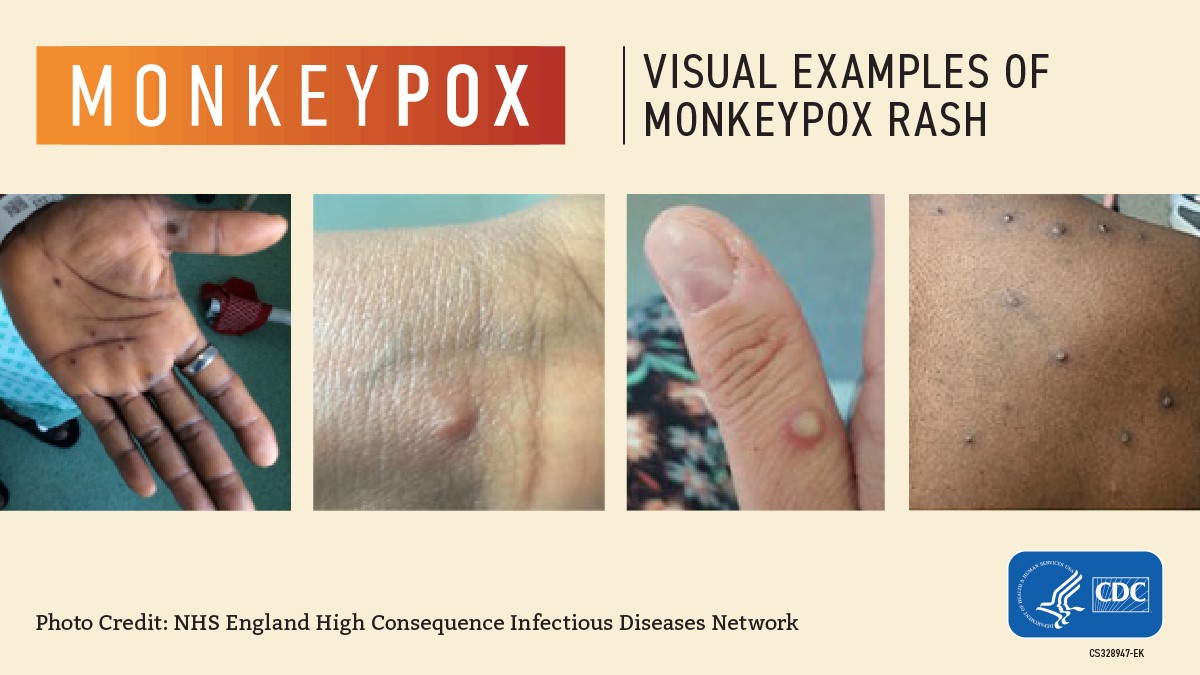Updated: Oct. 17, 2025
Mpox
While the 2022 mpox outbreak has been declared over and the declared public health emergency has ended, low-level transmission of mpox is still occurring in the U.S.
Mpox transmission may still occur within South Carolina.
Providers should continue to test patients with clinical symptoms suggestive of mpox and offer or recommend mpox vaccination as part of routine STD care.
In addition, DPH strongly recommends that people receive both doses of the mpox vaccination prior to activities that could lead to high-risk contact. There is some protection after the first dose, but the best protection occurs two weeks after the second dose. Talk to your health care provider to get a prescription for the mpox vaccine.
Educational Materials
The public, community partners, healthcare providers and others can share these materials to help increase awareness of and reduce exposure to mpox in South Carolina.
What Everyone Needs to Know
These materials provide information about what mpox is, its symptoms, and what you can do.
- Poster (pdf)
- Fact Sheet (pdf)
- Fact Sheet: After Vaccination (pdf)
Clinical Resources
The fact sheet is for health care providers and contains information about how Mpox presents, testing, treatment, and reporting cases to DPH. Health care providers should contact their local health department for mpox consultation.
- Fact Sheet (pdf)
- CDC - Mpox


